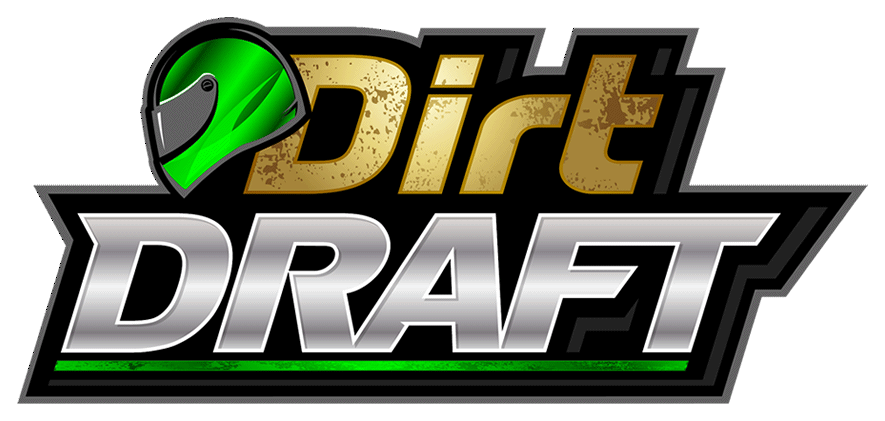
Eldora Speedway
Purvis fondly recalls his special era at World 100
By Kevin Kovac
DirtonDirt.com senior writerJeff Purvis was in a conversation with a reporter when he paused and turned the direction of the questioning around.
“Let me ask you something,” the retired Dirt Late Model Hall of Famer said, “what do you know about Eldora with me?”
Anyone with a semblance of knowledge about Dirt Late Model racing’s history, of course, doesn’t have to be reminded of what Purvis accomplished at Eldora Speedway, the famous track that Earl Baltes built amid the cornfields in Rossburg, Ohio. During the 1980s, Purvis authored a spectacular run of success in the half-mile oval’s marquee event, the World 100, that stands virtually unrivaled. He finished second in his Eldora debut as a fresh-faced 23-year-old in 1982, then over the next four years won the race three times (’83, ’84, ’86) and added another runner-up result in ’85. After putting a third bridesmaid finish, in ’88, on his ledger, he closed the decade with an astounding six top-two placings in eight feature appearances.
And then Purvis never took the green flag in the World 100 finale again. He returned once more, in 1991, to tackle the World 100 as his asphalt career with NASCAR, ARCA and other circuits was taking off, but he experienced trouble, failed to qualify and hasn’t competed nor seen a race in person at Eldora since then.
“That’s the only times I ever went there in my life,” Purvis said of his nine September trips to Eldora from 1982-91. “I only went for the World 100.”
It’s almost unbelievable that a driver who packed so much success at one track into a relatively short period of time hasn’t witnessed a car circle the place with his own eyes in three decades, but that’s the case with Purvis.
“Michael Waltrip and (Kenny) Schrader called me when they were running that SRX (Superstar Racing Experience) deal (earlier this year at Eldora), and Schrader said, ‘Michael wants to ask you how to get around this racetrack,’ ” Purvis said of his NASCAR friends who dialed him up seeking Eldora knowledge. “I said, ‘That was 30 years ago man!’ All I said is, ‘If you can’t pass him on the bottom, try him on the top.’
“I can’t remember how to get to Eldora,” he added, “much less get around it.”
The significance of what Eldora, and specifically the World 100, has meant to Purvis is not lost on him, however. Now 62 and living in his native Clarksville, Tenn., Purvis is half his live removed from his glory days at the Big E, but those coveted globe trophies he won there remain close to his heart and prominent in his mind.
“If somebody says, ‘What have you done in your racing career in Busch racing, short-track asphalt, dirt or whatever,’ that’s always been my go-to,” Purvis said, referring to his World 100 hardware. “It’s not the biggest trophy — I’ve got some huge ones — but it means the most to me.
“You gotta understand, the first one I didn’t win,” he continued. “To start with, I was in such shock that I even ran that good (in ’82) and everything came together like it did. Then the next time I came back and won … and every time I won it, it seemed like I really wasn’t supposed to. It seemed like that place was bigger than I was. It really was. It put me in a different arena for the rest of my life, it really did.”
Becoming Eldora’s Golden Boy
Purvis was a teenager of 14 in 1973 when he made his first laps in a race car owned by his father, Clyde, who operated a used-car lot and fielded a machine that he had let several drivers pilot.
“I finally asked him, if you don’t mind running dead last, why don’t you just let me drive some?” Purvis recalled of his start in racing. “I ran dead last for a long time. My dad paid the bills, and at first he kept all the money — and he needed to keep all the money because I tore up a lot of stuff.”
Purvis launched his career at his hometown Clarksville Speedway, a bullring that “toughened me up for one thing,” he said, “because you were always in traffic.” The early years were rough, but soon he became a regular winner on his local circuit and gradually began to expand his horizons to more far-flung Dirt Late Model shows.
Sometime during the 1981 season, a trip to a Sunday afternoon race at a track in Campbellsville, Ky., became a fateful milestone on his road to Eldora’s spotlight.
“We parked up there alongside like Ray Godsey or somebody,” Purvis recalled. “I had seen Godsey and (Charlie) Swartz and some of that bunch racing, but I had either a Billy Clanton car or a Roscoe Smith car — one of the two, one of these Georgia cars — and I could run pretty good with ‘em, but (the northern racers) had a different type of car than what I had and I couldn’t outrun Godsey that day.
“Well, C.J. Rayburn (the legendary Indiana chassis builder) talked to my dad up there and said, ‘You need to get him in one of these cars right here.’ And they worked out some kind of deal and they got me in a car later on, and that changed dirt racing for me. I started winning a lot of races, and that’s kind of how I got started on that Eldora deal.”
The World 100 was already a decade old at that time and well on its way to becoming the sport’s most prestigious event. Purvis was well aware of it and the mystical Eldora Speedway, but racing there wasn’t yet in his crosshairs. Then Rayburn piqued his interest.
“Everybody always talked about Eldora, and Rayburn said, ‘You need to go up there and watch this deal, but you don’t need to go up there and try to run it,’ ” Purvis said. “I never was really good at following directions, and I thought, Well, I’ll just go up there and try this thing.”
So, in September 1982, Purvis trekked to Eldora for the first time. He was greeted by a massive 127-car field and a facility and racetrack that were decidedly intimidating for a young kid who had yet to become a national superstar.
“I pulled up there and saw that racetrack and it scared me to death,” Purvis said. “I thought, What have I done? But for whatever reason, I was extremely fast there. It didn’t fit my driving. It was a faster track than I’d ever been on for sure. But I immediately was fast.”
In fact, looking back at his Eldora debut nearly 40 years later, Purvis asserted that the No. 15 machine he drove to a runner-up finish “was the fastest car I ever had up there.” He felt that race should have been his — a victory that would have given him a World 100 win in his first-ever Eldora start six years before Scott Bloomquist of Mooresburg, Tenn., achieved that historic double — and the passage of time doesn’t dull the sting of losing.
“The first year I was leading the thing and they started to black-flag me (for body damage) and about the same time a caution came out,” remembered Purvis, who had passed Charlie Swartz to lead laps 46-49. “So when the caution came out I got to go in because I’d broke a piece of spoiler off the left-rear and it was flapping in the wind; it had a piece of iron that held the spoiler, it was a metal brace, and it was flopping. I went up in there and they just broke the spoiler off and sent me back out.
“I was at the tail of the field and I started coming up back through there, and I got to second. I had run (leader Mike) Duvall down and I was trying to pass him (in the final laps), and I had a fuel pickup problem or something and all of a sudden the car started sputtering and missing and just basically quit coming down the front straightaway and I started coasting into the pits. Then I clutched it — they don’t even really have a clutch anymore — but I clutched it and it started back up, so I pulled back on the racetrack and it was still under green and I took off again. And I ran him back down and he beat me across the finish line by a half a car length.”
Purvis paused, a delay that all these years later makes it clear that he considers it the race that got away. “The ’82 race is one that always sticks with me,” he mourned.
But World 100 joy would come to Purvis soon enough.
“In ’82, it was like, ‘Was it a fluke or not? Because that was a bigger racetrack, a bigger experience than I’d ever been in, so we really weren’t sure,” Purvis said. “So I went back up there again (in ’83), and lo and behold, I ended up winning the thing (for a $16,000 top prize).
“I built a new car, a chromoly car that according to Rayburn is what I had to have, and it was not as fast as the other car (in ’82). Pat Patrick was leading it and he had run off with it on all of us, and I moved up about a half a car length out of the groove where everybody else was a little bit and ran him down and passed him with about 15 laps to go or so (lap 86), and by the end of the race I was a half a straightaway ahead of everybody.”
Purvis did it again in 1984, regaining the lead from Pennsylvania big-block modified star Kenny Brightbill on lap 75 en route to claiming the $17,000 check over the burly Keystone State racer. In the process, Purvis became the first driver to win back-to-back World 100s.
There was another second-place finish for Purvis in ’85, behind flag-to-flag winner Larry Moore, the driver whom Purvis looked up to like no other rival in the Dirt Late Model ranks. Then there was his dominant third career World 100 victory in ’86, a $19,000 triumph that came after he overtook Swartz for the lead on lap 19 and never looked back.
Purvis’s Eldora decade concluded with finishes of eighth in ’87, second in ’88 (to Bloomquist after he led laps 1-49) and 23rd in ’89 (the only DNF of his World 100 career).
“I don’t even remember the eighth-place finish because I’m sure I pouted and went home or whatever,” said Purvis, who admitted that his ultracompetitive personality always made losing difficult for him to accept. “But the 23rd-place finish, I had a fast car. It would’ve won the race (captured by Donnie Moran of Dresden, Ohio), no doubt.”
The losses still resonate with Purvis, but he acknowledged that Eldora treated him very, very well.
“I had a pretty good run at Eldora,” he said, before modestly adding: “It never fit me. I did good there because I was scared I wasn’t going to. I thought I wasn’t supposed to (be successful at Eldora), and I think it always pushed me to be better. When I started doing good, then I was scared to lose.”
The Eldora aura
Purvis can still recall with great clarity the sense of wonder that swept over him the first time he laid eyes on Eldora in 1982.
“I had an impression of that place before I saw it,” Purvis said. “I mean, I’d listened to people (talk about the track), and it was always like a dream I’d go there. I’d always heard about it, and I was nervous to ever see it, I really was. I was nervous to just pull in there. You didn’t have all the cameras and the videos and everything what you have today (to know what the facility looked like).
“And when I saw it, I immediately fell in love with the surroundings. When we pulled over the racetrack in the hauler, it was like, ‘Man!’ I was in awe of what I was seeing. It was that date that you’d always wanted, but when you got there, you thought, Man, I’m over my head here. And I really did think that.”
The campers outside the track. The steep banks. The covered grandstand. The bleachers on the hillsides through the corners. It all blew Purvis’s mind.
“It’s almost like an amphitheater, more of a stadium feel than any other place I’d been to,” he said. “You were on stage the whole time you were there. When I saw it, like I said, it was bigger than I was.”
Standing on the winner’s stage in front of a crowd numbering in the thousands was an unforgettable experience for Purvis.
“I remember just the whole atmosphere that I’d never been used to,” Purvis said in a recent Road to Eldora interview with Ben Shelton. “I just remember being up there not believing what I had done. I knew this was a big race. I knew when I pulled in that very first time in ’82 that it was a bigger deal than what I’d been doing my whole life.”
Purvis counts himself fortunate to have captured the World 100.
“I never got to run the Dream (Eldora’s six-figure-to-win June event that began in 1994), but even though it paid more — and I know this will sound corny and people won’t believe this — that World 100 was always just a dream of mine,” asserted Purvis, whose Dirt Late Model accomplishments also include two NDRA championships (’84 and ’85), a Southern All Star Series crown in ’86 and victories in the North-South 100 (’87, ’89) and National 100 (’82, ’83, ’85). “The Dream would’ve been another race to me. It wouldn’t have been the World 100.”
Purvis currently has most of the hundreds of trophies he collected during his sparkling career in storage (he’s building a new shop in a barn on his sprawling property in Clarksville, Tenn., where he intends to put many of his racing mementos), but two of his World 100 globe trophies — the ones from 1984 and ’86 — are prominently displayed in an upstairs room in his beautiful home. The other World 100 globe, from ’83, is on loan to the Clarksville Custom House museum that has a motorsports exhibit featuring him and other racers hailing from the city on the Tennessee-Kentucky border.
Every time Purvis walks past those trophies, his mind can wander back to all the fun he had at Eldora in the ‘80s and how thankful he is that the late Baltes built the track into such an internationally known venue — though Purvis admitted the ornery Eldora promoter always made him a bit nervous.
“I was even shy towards him,” Purvis said when asked about Baltes. “He wore the rolled-up hat, and I didn’t know what to make of him, cause when he talked to me, it was like, ‘Hell, he’s mad at me.’ I thought the whole time, Are you mad at me because I stunk your show up or something? But that was just him.
“Every time I saw him coming towards me I thought, OK, I’m in trouble. But he created something unbelievable. He really did.
“I was excited when I saw (former NASCAR Cup Series champion Tony) Stewart bought the (track from Baltes in 2004) because I knew he would carry on with the tradition,” he added. “I mean, he’s the perfect one to own that racetrack. He continues to make it still Eldora, but he keeps stepping it up a little bit too like it needs to be.”
Ready to return
Purvis has been through a lot — both good and bad — since he last heard the roar of engines tearing around Eldora Speedway. But a lot happens in a person’s life over 30 years.
Beginning in 1989 when his then Dirt Late Model car owner, James Finch, decided to dive into asphalt racing, Purvis’s days sliding around dirt tracks were numbered. He spent the next segment of his career focusing on pavement competition, making 187 NASCAR Busch Series (now Xfinity Series) starts (he won four times and, in 1999, finished a career-high sixth in the points standings), 50 NASCAR Cup Series starts (best finish: 12th, in the ’96 Daytona 500) and 24 ARCA stock-car starts (his eight victories included wins at Daytona, Talladega, Michigan, Pocono and Atlanta). He also won two of the asphalt Late Model division’s biggest events, capturing Nashville’s All-American 400 three times (1991, ’92, ’95) and the Snowball Derby in ’95.
The bad occurred on May 18, 2002, when he nearly lost his life in a NASCAR Busch Series crash at Nazareth (Pa.) Speedway after blowing an engine and taking a full-speed hit to his driver’s-side door from Greg Biffle. He broke his neck and suffered serious head trauma in the wreck, which effectively ended his NASCAR career; after a long recovery, he made only one more Busch Series start, returning to Nazareth in May 2004 to drive Finch’s Phoenix Racing car to a 17th-place finish.
Purvis actually made a Dirt Late Model comeback — albeit on a lower level — in 2005 when he ran good friend Mike Vaughn’s fledgling StormPay.com Crate Late Model Series and won races, but another serious accident short-circuited his racing exploits again in August 2006. While traveling to a Crate Late Model event at Talladega Short Track in Eastaboga, Ala., in his team’s semi-truck with living quarters, a blown left-front tire sent the rig across the I-65 highway median and rolling into trees on the side of the road. Purvis suffered another broken neck, among other injuries, in the crash, which his wife, Margo, their son, Clay, and three crewmen escaped without similarly serious injury.
The highway accident that Purvis called “the worst crash in my life” prompted him to step out of the cockpit before turning 50 and concentrate on his business interests, including the operation of scrap metal, recycling and garbage operations that employ a combined 300 people. But he certainly hasn’t turned a blind eye to the sport that he loves.
“There’s very few days that I go and somebody’s not talking to me about some kind of racing,” he told DirtonDirt.com’s Michael Rigsby in a December 2019 Rigsby Report podcast. “And they talk to me like we’re fixing to go (racing) tonight or whatever.
“I’m a race fan now,” he continued. “I’m like anybody else — they have favorites — and I do watch it. There are a lot of drivers who have brought excitement to it for people like me.”
Purvis has grown fond of watching all-around talent Kyle Larson, the NASCAR Cup Series points leader and winner of open-wheel and Dirt Late Model events of whom he says, “The GOAT (title), if they’re gonna have to hang it anywhere, it’s gonna have to be around his neck.”
Dirt Late Model racing commands Purvis’s attention, too. He has said he’s a fan of Blairsville, Ga.’s Jonathan Davenport, whose three World 100 wins in five years is reminiscent of Purvis’s hot streak, and June’s magnificent Dreams sweep at Eldora by Brandon Overton of Evans, Ga., left Purvis “seriously impressed” as well.
“If (this week’s double World 100s) goes like the last (Dreams) I saw,” Purvis said, “they may as well just go and mail Overton his check.”
But will Purvis be at Eldora this week to witness a historic four-night meet that includes the 50th World 100? He hinted that he’s ready to return to the site where he enjoyed so many glorious moments.
“My wife and I drove up there to watch the World 100 (in 2007) and it got rained out (to Sunday) and we never got to watch it,” Purvis said. “I remember we came back and stayed in Florence, Ky. (following the postponement) and went to the (National Dirt Late Model Hall of Fame) museum.”
Purvis admitted he has the itch to visit Eldora again — and see old friends — after all these years, but he doesn’t want to make any waves when he’s there. He’s a three-time World 100 champion, an undeniable Eldora legend, but he’s still the same low-key racer who likes to fly under the radar.
“Me and a couple guys who’ve been around me racing thought about going up (to Eldora) last year, but obviously (the World 100 didn’t happen because Covid-19 restrictions that turned the event into a spectator-free invitational),” Purvis told Ben Shelton. “We wanted to, I hate to say this, slip in and slip out … come in there and see all the changes and see the event, and come with the friends we wanted to bring and see the few people and then slip out of there, because this event’s about today. It’s about the ones that are putting themselves out there today, not about the Jeff Purvises.
“But we will come,” he added. “I won’t for sure tell you it’s gonna be this year, but we will be there (again).”

















































